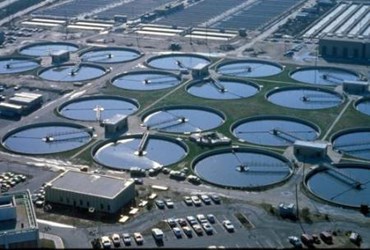Biosolids Program Can Improve Efficiency, Save Money

By Laura Martin

Any facility that prepares biosolids can save money, improve efficiency, and be more environmentally conscious. All they need is a bit of guidance.
That guidance is available through the National Biosolids Partnership’s Biosolids Management Program, offered by the Water Environment Federation (WEF). The program was created to help public agencies and private companies that prepare biosolids better manage their operations.
“Because the program aims at continuous improvement over time, it results in long-term money savings,” says Lisa McFadden, senior program manager for the Water Science and Engineering Center at WEF. “There is a great benefit in learning the best practices for improving efficiency and how to better manage programs.”
Based on internationally recognized standards for Environmental Management System/International Organization of Standardization (ISO 14001), the program is designed to equip operators, managers, and administrators with tools to track and monitor data needed to achieve optimized biosolids management performance and ensure regulatory compliance. The program is also focused on improving communication protocols, helping organizations maintain credibility with communities and stakeholders, addressing aging workforce issues, and improving employee morale.
Completing the program can take anywhere from 12 to 24 months, depending on the participant’s pace. Program participants, using the guidelines and training materials provided by the Biosolids Management Program, create their own plan for improving efficiency and expanding their biosoilds management initiatives. This plan is then audited based on a 17-point system. Throughout the plan creation process and the audit, WEF provides virtual training programs, guidance documents, ongoing on-call technical assistance, and in-person seminars. Each organization is also matched with a mentor organization that has previously been through the program.
Going through the entire audit preparation process isn’t easy, but it is worth it, says McFadden.
“It is a very intense program; it is not something our participating organizations take lightly,” she says. “It is a constant improvement program, but it really makes a difference.”
There are four tiers for certification in the program: bronze, silver, gold, and platinum. Gold- and platinum-level certifications require at least one independent third-party audit. So far, 100 organizations have gone through the program, with 33 reaching platinum status. McFadden anticipates even more reaching that level in the near future.
“We have a number of organizations up and coming, some of the largest in the country,” she says. “It is really a terrific program with a lot of opportunity to ensure progress in the area of biosolids management.”
WEF does not charge participants for any of the materials or assistance provided as part of the Biosolids Management Program. However there is a cost for the audit itself, which varies based on the company doing the audit.
Any organization that deals with biosolids, including both public agencies and private companies, can participate in the program. McFadden instructs those interested to visit www.wef.org/Biosolids and browse the program documents available. To get involved, contact WEF at 703-684-2400.
